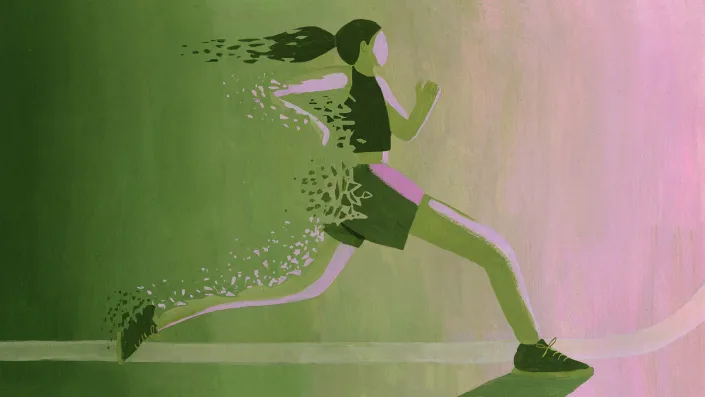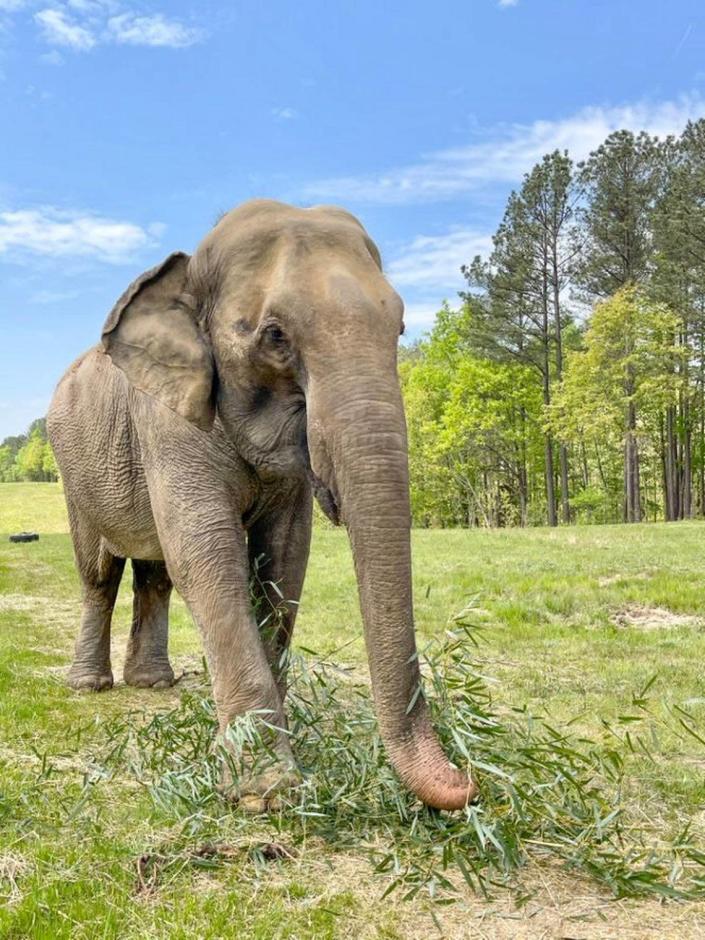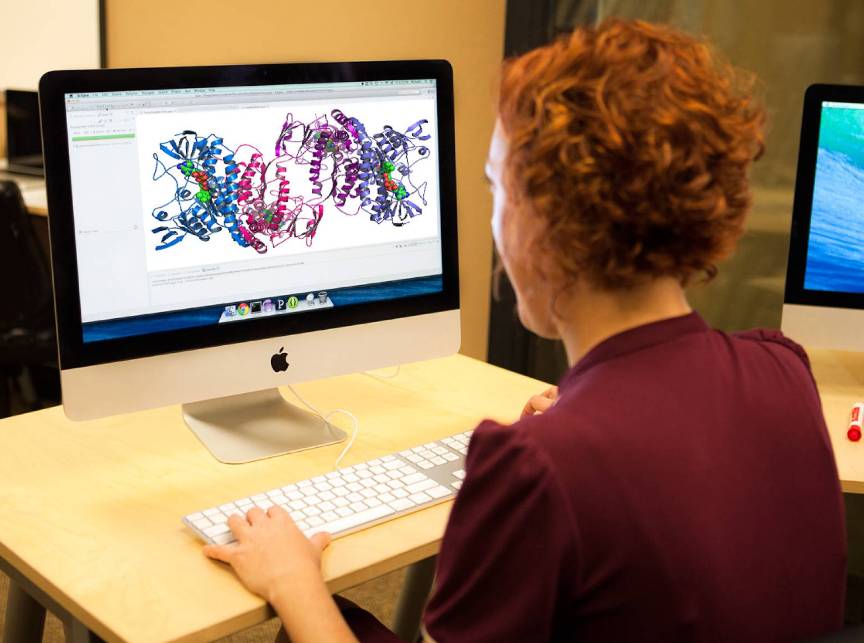
I remember long distance running the most. My favorite workout was a 14-mile run with 10 miles fast in between. The kind of run where you get halfway through and don’t know how to hold on, but somehow you do. It’s the best feeling in the world, like running is your superpower.
Those runs are fading for me now Polaroid. It’s been a long time since I’ve felt like myself on a long run or any grind control, pacing clicks, shortening segment times, grinding out miles, chasing goals, and surprising myself with my ability to do so. My run today was not that at all. I miss the struggle for survival stuff.
In 2004, I set an American high school record in the 5K, immediately signed a professional contract with Nike, and planned to be an Olympian multiple times by the time I was 30. That was my dream.
Instead, for the past 18 years, I have been in a state of extreme fatigue that no medical professional could ever explain. Yet I keep running. I fell in love with the sport a long time ago, and although it broke my heart a thousand times, I’ll be back.
I will never forget the moment I fell into the abyss. It was early 2005 and I had just graduated from high school. I was wearing an orange long-sleeved Nike shirt. It’s still hard for me to comprehend that I was a Nike athlete getting all this free gear and running on the giant Ronaldo grass in the middle of my personal Garden of Eden, the Nike World Headquarters in Oregon.
It happened midway through the third repetition of a 10×1 km workout, on a cone-shaped contoured loop. I was running side by side with my new elite training partner. We had just rounded the side of the restaurant where the staff often watched us, like I had tripped and fallen into the darkness.
My legs felt like lead. My breath started to catch in my throat. I watched my training partner pull away from me. But she doesn’t soar; she keeps pace. I was the one who fell off.
In the years to come, I would watch my body’s abilities disintegrate, along with my dreams. I felt like someone was sawing off my leg, like I was bleeding, and I couldn’t stop it at all.
I fell in love with the sport a long time ago, and even though it broke my heart a thousand times, I would come back.
The actual feeling is like nothing I’ve ever experienced before. From the first step of training, it’s about working harder than I have in the past on race days. I would give it my all, look down at my watch and realize I was running slower minutes per mile than it felt. My brain would scream for my legs to turn over, but they couldn’t respond. It was like running through quicksand, like one of those dreams where you try to run but get stuck in slow motion.
At first, I had a glimmer of hope. Every once in a while, I would get in a great workout, a tempo run or a mile repeat that rivaled the best women in the country. One day during this period, at a high-altitude camp in Park City, Utah, I sprinted a 5-mile tempo run, followed by an 800-meter repeat, faster than I could go at sea level. What’s even crazier is that this was just three days after my emergency appendectomy. These shimmering lights fill me with hope to continue to join my team for workouts. I’ll be encouraged to just come back next time and try to be 200 seconds slower than the JV high schooler in the Converse sneakers.
Eventually, my body cast itself completely into the dark abyss. I felt like Alice tumbling down a rabbit hole, but I refused to let go of my white knuckles on my goals and dreams.
My coach and I found every doctor. I underwent a series of tests, starting with a standard blood draw and then more complicated procedures, like collecting my urine throughout the day. All these specialists and experts could tell me was that my results seemed normal.
It’s frustrating to be told you’re normal when you know you’re not. I began to fear that another doctor would raise an eyebrow and ask, “Have you studied psychiatry?”
I was an open book. I was fully aware that I had psychological problems: I was diagnosed with depression, anxiety and OCD. But this was different. I knew it wasn’t in my head.
After years of research and talking to endurance athletes who suffered from similar symptoms, the only answer I came up with was that I had some kind of adrenal fatigue, a condition that Western medicine could not identify with no treatment options.
Earlier in my life, I tried to rest fully and not run for weeks or even months. The bonds of fatigue still clung to me like a vise. Mentally, however, I barely made it through those breaks. At one point, I fell into a place so dark that I tried to end my life. Running has been the main thread that has kept me sane. It was the only time the chatter in my head was blissfully silent. It prevents a whole wave of depression from coming my way. Only after running can I relax and function fully as the kind of person I want to be in this world.
As my abilities continued to mysteriously decline, I decided that even though running was brutal on my body, and even though I might never be fast again, the mental rewards were worth it. Running was my life raft; it kept me from drowning. I desperately clung to the behavior that once brought me so much joy and still provides peace.
But it’s not just the memories and my mental health that keep me lacing up my running shoes. This activity has become a part of my identity, my career and my dreams. It was my first love. I felt like letting go meant giving up the last piece of myself. Even though the days of feeling in sync and bouncing back in stride are gone, running still provides the element I love and crave: a test of mental toughness.
I’m addicted to proving to myself that I can do hard things. I love pushing myself into and through caves of pain. It’s an urge that makes me feel invincible, afloat, and special. I can make myself do things that most people can’t do, and that gives me confidence.
But, as all runners know, the thing about toughness is that you can never prove it once. You can’t check the box, kick your feet, and then relax. Wipe the slate clean the next day. That’s why I used to eagerly wait for race days, hard training days and Sunday long runs: when I could prove to myself again that I was still as tough as I was last week – no, tougher. My biggest fear was the day I showed up and couldn’t pass the test.
Even when I can no longer work out or race, when jogging is so taxing that it drains everything I have, it is still my daily test. I’m not fast anymore, but I’m still strong, right? I had to know.
In 2010, I was hit by a car while I was running. I almost lost a leg and the medical professionals told me I would never walk or run again. But in the back of my mind, there was never a question I would ask. Call it forced ignorance, but I couldn’t imagine never running again.
Looking back, I’m amazed that this accident now feels like a minor detail in my running saga. Unlike mysterious fatigue, I can figure out how to recover from it. At least I know my enemy and know how to fight it through a tough recovery year.
The journey back to running after the crash did in some ways help me change my perspective on losing a once-record-setting runner. I stared at the reality of never being able to run, and I vowed that if I could run again, I would be grateful.
That gratitude was key. Easy running is like my phantom limb – its ghost haunting me and making my brain itch. But I’ve learned how to reframe that longing into a more positive one. Whenever my thoughts revert to burning anger and pain, which isn’t fair, I remind myself that I can still run. I am still a runner.
I tried to be kind to myself, to be somewhat graceful – when I was fasting, I was a cruel miser. After every practice or race, even when I PR’d, I would inevitably ask my coach, “Could I have tried harder?” I was tormented by the fear that I wasn’t squeezing every ounce out of myself or that I couldn’t give enough. When I get caught up in these spiraling doubts today, I try to remember the effort I put in to be able to run.
For years, I felt ashamed that I was never the runner I was supposed to be. When people asked about my PR, I always looked down and added a disclaimer, “Well, I mean, I’ll never be able to run it now, so it doesn’t really count.”
I slowly started to ignore the voices. The fact that I never ran faster didn’t erase my 15:52.88 5K. i did. I spent a lifetime of training for this. I’m doing what makes me happiest, and it’s an experience I wouldn’t give up for the world. I am proud of the runner I once was. She is still a part of me. The ghost of her runs around me and keeps me going.
Easy running is like my phantom limb – its ghost haunts me and makes my brain itch. But every time my thoughts reverted to burning anger and pain, which wasn’t fair, I reminded myself I could still run.
It took me longer to get over the shame I felt about my current pace – my 12-minute mile. As I type, a part of me still cringes. We’re all a work in progress.
I’m holding out hope that one day my running won’t feel awful. I go to bed at night hoping I’ll wake up and this mysterious illness will disappear as suddenly as it came. I devour any article about weird fatigue; I know I’m not the only endurance athlete who has fallen off a cliff into the darkness.
I would never give up the dream that maybe I would meet a specialist – a doctor, a holistic medicine specialist, a shaman, an underwater weaver, whoever – who would know how to cure me. It was a slender and fragile dream. The new doctor promises, “I will heal you! I’m the best!” Countless times, only telling me it must be in my head. The downward crash crushed it, grinding the spirit into tiny pieces that were blown away by the wind. Nonetheless, I choose to remain cautiously optimistic. It’s much easier to survive if you carry a little hope with you.
However, I fully realize that I may never be able to escape this moonless void. Whether tomorrow may or may not bring it, I am trying to make peace with the reality that this is my body now.
Today I am a shell of the runner I once was. In the morning, my fatigue casts a black blanket over me. I can barely think, talk or move. I gushed about running seven miles slow, at any pace I could manage, just like my sacred long runs of the past. As my GPS synced, I squeezed another voice out of my head that it was cruel. Why are we doing this? and repeat my gratitude mantra: I am thankful for my legs and my body allowing me to do what I love. I am grateful for the opportunity to run.
Once the watch kicks in and I start running, muscle memory takes over. My body still knows that this is what it is supposed to do. Slowly, the anxiety disappears.
As my legs become weak, my breathing becomes labored, and the pain of struggling to keep moving begins to peak, I focus on the familiar movements. I feel like I’m in the last mile of a marathon. We were now in a cave of pain. There are moments when I seem to be falling and I just wish my legs would stay upright. I tell myself that these dark areas of hell won’t last forever and that if I keep going, it will feel better. I promised myself it would get better, even though I knew it was a lie. This fatigue never subsides. But the lie keeps me going – it’s a self-protective lie.
The moment of completion, relief, endorphins and gratitude swept over me like a storm. I did it. I survived another day. I passed the test. I’m still a runner.



